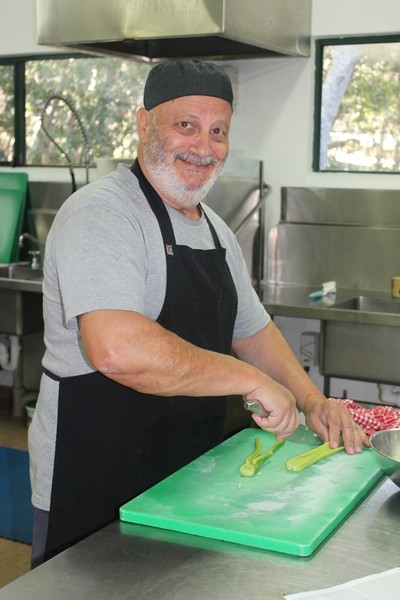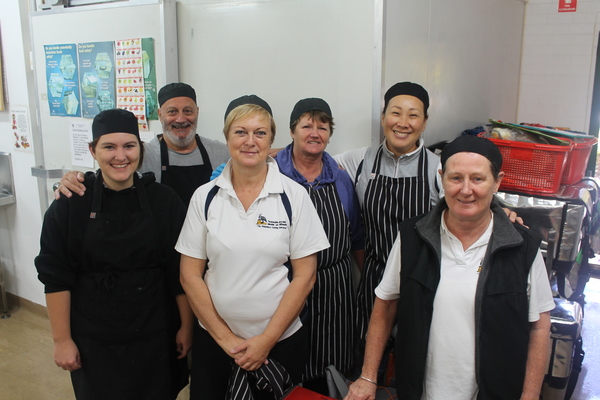By RON LANE
It was the end of 1940 and the destruction was horrendous. Many thousands were killed and homes destroyed. An estimated one third of London had, as a result of the Blitz, been raised to the ground.
But through all this a light began to shine; a light that was lit and carried by a group of women. Now some 75 years later, this light not only continues to burn brightly, but now shines throughout the United Kingdom, Canada, America, Australia and Japan.
This group of women known as the Womens Volunteer Service for Civil Defense (WVS later the WRVS) started providing food for not only servicemen but also the homeless and the elderly; all those in need. With homes destroyed and many thousands stranded, it was indeed a massive task.
Many of these early services used old prams to transport the meals using straw bales and even old felt hats to keep the food warm in transit.
In 1943 in Hertfordshire, England, the movement really started to gain momentum however, with the passing of time the authorities in the United Kingdom moved away from freshly cooked hot food deliveries to the supply of frozen, pre-cooked, reheatable meals.
For Australia, Meals on Wheels first started in 1952 in South Melbourne. The meals that cost the recipient the grand total of two shillings (20 cents) arrived on the doorstep courtesy of a lady riding a tricycle. However, the idea took hold and the requests for this kind of help grew to such an extent that it was too much for the lady on a tricycle to handle. It was then that the Red Cross stepped in to help.
Soon after, in 1953, Doris Taylor MBE founded the Meals on Wheels in South Australia. The following year, the first meals were served from a Port Adelaide kitchen and delivered to eight elderly people.
For NSW, the Sydney City Council started the Meals on Wheels in 1957 and in their first week 150 meals, cooked in the Town Hall kitchen, was served for city folk.
In Queensland in 1956, the late Mrs Rhoda Cameron of Ipswich became fully aware of a definite need to feed the poor in her home state. Prior to this, while on a trip to England with her husband, the then Commonwealth Health Minister Mrs Cameron saw a meals service organisation being conducted. She immediately thought of this as a means to help the needy in her own community.
On returning to Ipswich, she took steps to organise a similar service and promote the idea. Initially, the concept did not meet with the hoped-for success, but unperturbed she continued, and with the assistance of the late Mrs Russell she, in her backyard garden cottage, started a Meals on Wheels, serving meals from a thermos flask and a pudding basin. All provided for the paltry sum of 2 shillings (20 cents).
Struggling as they did, both ladies kept the faith and with the 2 shilling cost per meal being their only means of funding (in those days there were no such thing as government grants for meals) their organisation somehow continued. Not only did it continue, but it was to become the concept from which the Meals on Wheels in Queensland had its start.
Now in our own community of Noosaville, Meals on Wheels, 75 years after the London Blitz, continues the tradition of helping the elderly and the handicapped; and does so with pride.
Our branch which started in 1974 worked from the back of a church hall in Earnest Street, Tewantin, and was supported by the local church group and the Lions Club. Now 41 years later and working from their own premises it is highly organised and still going strong.
It is now 20 years since the present manager Desiree Phillips walked through the doors of Meals on Wheels and she definitely has no regrets. None whatsoever.
“I have been with Meals on Wheels now since 1994, and honestly I have loved every minute of it. It is a job that gives great satisfaction, for we help people improve their quality of life, and I know we are definitely making a difference,” she said.
For Desiree, her journey started at Lithgow in the Blue Mountains where she was born.
“I couldn’t wait to get my license and get the hell out of there,” she said with a laugh.
“It was really cold in winter and hot in summer. No good to me. This place is exactly what I was looking for.”
After finishing her education at the Lithgow High School, Desiree’s first job at 16 years old was picking fruit in the Hartley Valley. She followed this with a short stint in a hardware company then moved on to Port Macquarie where her path led her into the hospitality industry as a restaurant manager. It was during this time she met John, her husband-to-be who had also worked in restaurants. They married in 1990 and have a son Alex. Following in his parents footsteps, Alex also entered the hospitality industry.
Then in 1994 they made the break and moved to Noosa, where in response to an advertisement regarding Meals on Wheels Desiree started in an occupation that has virtually become a way of life. The Noosa branch has a paid staff of three; Desiree as manager, Sharran Clair cook and Kaki Waldock as kitchen hand. Sharran who has worked as a cook for three and a half years said, “I love it. It’s a great community job and in particular working with volunteers creates a great environment. Everyone is here because they want to be.”
Sharran who moved to Noosa from Bathurst some nine years ago also bought with her many years of experience in the restaurant industry. Kaki, who hails from Japan and is now married to an Australian, has been on the team for four years. Starting as a volunteer, she left to have a baby. Later on when the position of permanent kitchen hand became available; she applied and was successful. For the team, the day starts at 7am and goes through to 2pm. At 7am the kitchen people commence their preparation and by 10am the meals have been prepared and the packing into specially designed eskies for distribution commences.
“Our Menu is changed monthly,” Desiree said. “It consists of soup, main course, dessert and fruit juice and delivered to the door at a cost of $8. We are also geared to cater for special dietary needs.
“With regard to our volunteers, we have approximately 160 on our books both male and female. We are very proud of these people and some have been with us a long time. They use their own vehicles for deliveries and of course receive a fuel subsidy.
“Just to name a couple of the many, Ken Bridges and his wife Chris have been with us for so long that a Certificate of Long Service and Life Time Membership has been awarded for their service.”
“We are always looking for volunteers but people must accept that anyone who steps forward must be prepared to be subjected to a background check by our local police. This is now standard procedure for all who come forward.”
The area covered by these volunteers is serviced by seven different runs per day and takes in an area from Marcus Creek, Tinbeerwah, Cooroibah, Tewantin, Noosaville and Noosa, delivering in the process some “400 meals per week.” It should also be remembered that Meals on Wheels is not just for the elderly but also for intellectually disabled and also people recovering from major surgery.
“For example we catered for a gentleman living alone who had undergone major shoulder surgery, which left him totally unable to assist himself.”
“It is only natural that in organisations as big and as involved as ours that we will occasionally encounter drawbacks, and sad to say this is one,” said Desiree.
Reaching across her desk she picked up what can only be described as a mountain of paperwork.
“Would you believe there are some 300 pages covering all sorts of regulations, and to be honest it is killing us. This sort of over kill we don’t need.”
Last Friday we gathered all the staff together for a photo shoot. The feeling in the kitchen, which was spotless, was incredible. Under the leadership of Desiree and Sharran, the atmosphere was one of harmony and joy; and it was indeed genuine.
This can only come from people who, above all, know that their time, skills and voluntary labor is being used in one of our many great humanitarian projects, Meals on Wheels. Well done to our people.











